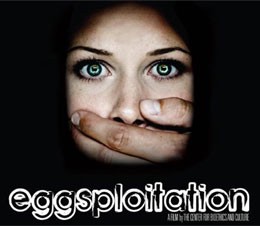Hollywood has not been quiet on the third-party reproduction front. Movies such as Baby Mamma, The Back-Up Plan, The Switch and The Kids are All Right, highlight the silly and light-hearted approach to modern day family building. And celebrity’s real life conception stories spatter the tabloid magazines. Sarah-Jessica Parker, Nicole Kidman, Elton John and countless others are building families through modern reproductive technologies, raising questions about who are the biological parents and does biology even matter.
But when Giuliana Rancic’s news broke about her struggles with infertility and failed attempts with in vitro fertilization (IVF) coupled with her recent diagnosis of breast cancer, the public got a glimpse at some of the realities surrounding technology which often seems to have been naturally accepted as good, safe and without problems. The fact is that most IVF cycles fail. IVF treatments are very expensive and the drugs and procedures are not without some serious short- and long-term risks, and IVF when using ‘third’ parties (e.g. egg, sperm from another and/or surrogates wombs) raises important questions like, are the kids really all right? And IVF is relatively new technology, so studies are only now coming out which are drawing correlations between fertility drugs and cancers (e.g. a recent study linked Clomiphene ((Clomid)) use to uterine cancer).
Two films, I wrote, directed and produced, seek to highlight some of the pitfalls of these modern reproductive technologies. First, the award-winning documentary (2011 Best Documentary, California Independent Film Festival), Eggsploitation, sheds light on the $6.5 billion dollar a year infertility industry in the United States and the demand for human eggs — the main commodity. Young women all over the world are solicited by ads on college campus message boards, social media outlets and online classifieds, offering up to $100,000 for their “donated” eggs, to “help make someone’s dream come true.” Eggsploitation focuses a bright light on three women who made the decision to “donate” their eggs and had tragic, nearly fatal health complications. Their stories are not unique as more women are coming forward to share their experiences.
Anonymous Father’s Day, will premiere at the SoHo Gallery for Digital Art in New York City on January 29, 2012. Anonymous Father’s Day, explores the stories of women and men who are the children of anonymous sperm donors. It is estimated that between 30,000–60,000 children are born each year in the United States via sperm donation. Thousands of donor-conceived people have a deep longing to know who they belong to, where they come from, and who they look like. What is it like to grow up not knowing who your father is or if you have any siblings? What is it like to find out that the man you thought was your dad is not your biological father, and that your true biological father donated (or sold) his sperm and is known only by a number? How does it impact your self-perception, the choices you make, and your view of life and the world? Donor-conceived people are demanding answers to these basic questions about their origins, their lives and their identities.
So, in order to tell a more accurate, fully-orbed story about these modern day family building technologies, these two films give voice to real people whose lives have been forever changed. To deny or ignore their voices will only perpetuate the myths of some films which seek to entertain but lead us to believe all is well with reproductive technologies and the children we make.
Both Eggsploitation and Anonymous Father’s Day will show at the SoHo Gallery for Digital Art in New York City beginning January 29, 2012 through February 2, 2012. Complete schedule and ticket information can be found here.
_________________________________________________________________________________________________________
Throughout the week, at each of the showings Jennifer will be on hand to discuss the film. She will be joined by people in the films as well as experts in third-party reproduction.






